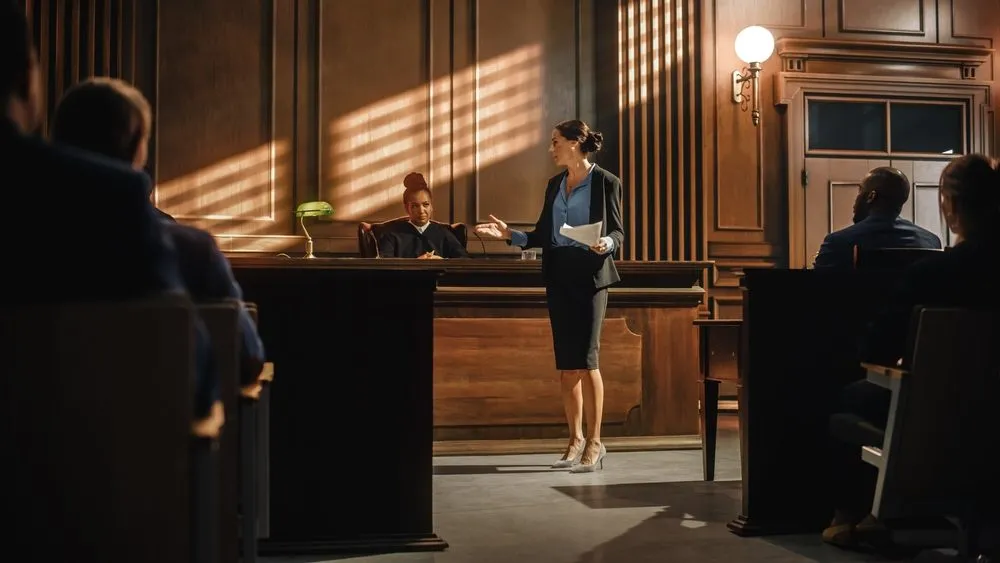In Massachusetts, facing criminal charges can be a daunting experience. For individuals accused of a crime, one crucial step in the legal process is the Clerk Magistrate’s Hearing. This is often overlooked but it is a pivotal phase that can shape the trajectory of one’s case and one’s life. It is imperative for defendants to understand its significance and seek legal representation from a reputable criminal defense law firm in Massachusetts. Get in touch with Nate Amendola Defense now, and get help from a Massachusetts clerk magistrate hearing lawyer.
What is a Clerk Magistrate Hearing?
A Clerk Magistrate Hearing, also known as a Show Cause Hearing, is an initial stage in the Massachusetts criminal justice system. It takes place before charges are formally filed against a defendant in court. The purpose of this hearing is for a Clerk Magistrate to determine whether there is enough evidence to issue criminal charges against the accused.
During this hearing, the Clerk Magistrate reviews the police report and any evidence presented by the police or complainant. The defendant has the opportunity to present their side of the story and any relevant evidence or witnesses. The Clerk Magistrate’s role is not to establish guilt or innocence but to decide whether probable cause exists to warrant moving forward with criminal charges.
For a free legal consultation with a clerk magistrate hearings lawyer serving Massachusetts, call (781) 740-0800
Common Criminal Charges Heard at a Clerk Magistrate Hearing in Massachusetts
- OUI
- Drug Charges
- Assault Charges
- 209A Violations
- Open Container
- Negligent Operation
- Property Crimes
- Larceny
Massachusetts Clerk Magistrate Hearings Lawyer Near Me (781) 740-0800
Purpose of Clerk Magistrate Hearings
A Clerk’s Hearing serves as a vital gatekeeping step in the criminal justice system. It allows the court to assess the strength of the evidence and the merits of the case before deciding whether to proceed with formal criminal charges. For individuals facing the possibility of a criminal complaint, it offers an opportunity to present their side of the story, challenge the evidence, and potentially prevent charges from being filed. The primary goals of a Clerk Magistrate Hearing are as follows:
Determining Probable Cause
The central objective of a Clerk Magistrate Hearing is for the clerk magistrate to determine whether there is enough probable cause to issue a criminal complaint. Probable cause refers to a reasonable belief, based on the evidence presented, that a crime has been committed and that the individual being investigated likely committed it. It is a relatively low burden.
Early Resolution
Clerk Magistrate Hearings offer an opportunity for a swift resolution of criminal cases. By evaluating the evidence and arguments at this early stage, the district court can decide whether formal charges should be filed or whether the matter can be resolved without proceeding to arraignment.
Screening Process
Clerk Magistrate Hearings serve as a screening mechanism to prevent weak or baseless cases from clogging the court system. If the evidence presented is insufficient to establish probable cause, the clerk magistrate may choose not to issue a complaint, sparing the individual from unnecessary legal proceedings.
Protecting Individuals’ Rights
The hearing allows the accused individual to present their side of the story and any relevant evidence before formal charges are filed. This safeguards the rights of individuals and ensures that they have the opportunity to challenge the allegations against them at an early stage.
Alternative Resolutions
Clerk Magistrate Hearings can lead to alternative resolutions. If the defense presents compelling evidence or arguments, the clerk magistrate might decide to dismiss the case, refer the matter for mediation or arbitration, or suggest participation in a diversion program, which could result in avoiding charges altogether.
Click to contact our Massachusetts Criminal Defense Lawyers today
Potential Outcomes of a Clerk Magistrate Hearing
- Criminal complaint is not issued by the police department
- Pretrial Diversion Program
- Case is continued for further investigation or negotiation
- Charges are issued against the defendant
Complete a Free Case Evaluation form now
FAQs: Clerk Magistrate Hearings in Massachusetts
What is the Standard at a Clerk Magistrate Hearing?
The standard for this type of hearing is probable cause. Probable cause is a burden that is met when the magistrate is provided reasonably trustworthy information that would sufficiently show him or her that a crime has been committed and that the accused is the person who committed the crime.
How is a Clerk Magistrate Hearing Different from a Trial?
A Clerk Magistrate Hearing is very different from a trial. This hearing is the preliminary stage of a court case. The determination made at this hearing decides whether to formally charge an individual and have them arraigned on those formal charges. This stage of the case is not a fact-finding mission, which means that the Magistrate is not looking to decide an innocent or guilty verdict. They are just looking for probable cause to kick off the case.
A trial is the end-stage of a case, after both the arraignment phase and the discovery phase. The evidence that would be presented at trial is likely much more in-depth than what may be presented at a Clerk Magistrate hearing. This is because a Clerk Magistrate hearing issolelyto determine whether probable cause exists to issue the charges against someone. At trial, the burden isproof beyond a reasonable doubt that the individual formally charged committed the alleged crime. This is where a determination of guilt or innocence is made. They are two very different standards.
What Happens if the Criminal Complaint is Issued?
If a complaint is issued following a Clerk Magistrate Hearing, it signifies that the clerk magistrate has determined there is sufficient probable cause to believe that a crime has been committed and that the individual being investigated is likely responsible. That decision initiates the next steps in the criminal justice process.
Who is a Clerk Magistrate?
A Clerk Magistrate Hearing is before a Magistrate; not before a judge. Clerk Magistrates are not required to be lawyers, but they often were or are licensed lawyers. They do not have to make any determinations of guilt or innocence, so they are not factfinders. In our system, the only fact-finders are judges and juries. Clerk Magistrates are typically senior or supervisory members of the clerk’s office for their respective courthouse.
How Nate Amendola Defense Can Help
Clerk Magistrate Hearings are complicated. They are stressful and they can be overwhelming. At the same time, a hearing is also a chance for an accused person to avoid formal charges. A proactive approach is essential in these cases. Our founder and lead attorney, Nate Amendola is a formidable and experienced criminal defense attorney representing clients before Clerk Magistrate Hearings in Massachusetts. We are ready to get started on your case right away. Among other things, our Massachusetts criminal defense lawyers are prepared to:
- Listen to your story and answer your questions about the process;
- Investigate the allegations, gathering relevant evidence;
- Help you prepare for the hearings; and explain the legal proceedings involved in your case.
- Develop a comprehensive strategy to protect your rights, freedom, and future.
Contact a Massachusetts Clerk Magistrate Hearing Lawyer
Whether you are facing a clerk magistrate hearing, criminal charges, or any other legal matter, we are here to provide you with strategic, personalized representation. Don’t face your legal challenges alone. Reach out to our office today to schedule a confidential consultation. Your legal journey begins with a single step, and we’re here to walk it with you. Contact our experienced clerk magistrate hearing lawyer in Massachusetts.
Call or text (781) 740-0800 or complete a Free Case Evaluation form




